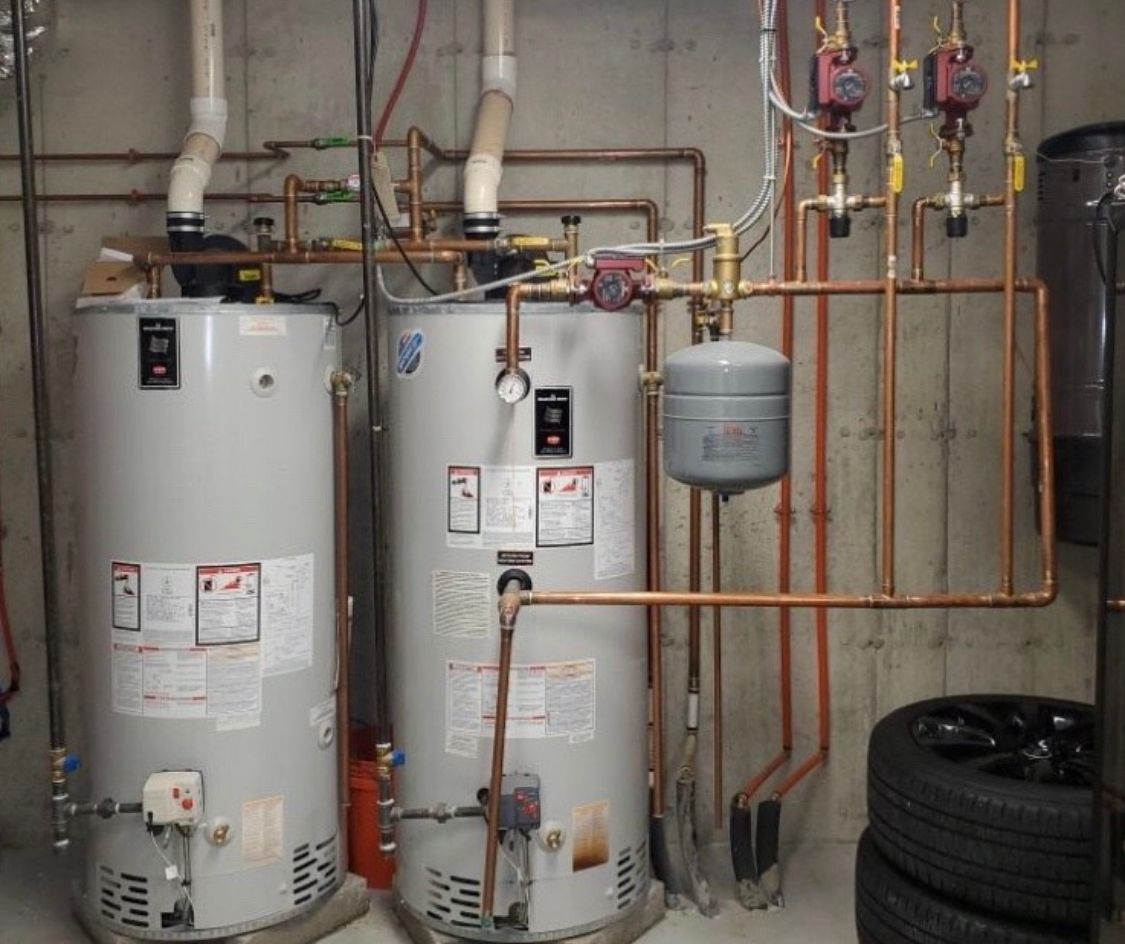
Life is full of choices and how to heat your water has many! There’s fuel type choices – gas, electric and propane. There’s vented and non-vented, storage off your boiler, heat plates, free standing, continuous flow, conventional draft, power vented, and the list goes on…
It would give us a headache if we didn’t study and learn constantly about new technology on the market. While the concept is all the same – heat the water and deliver it to the fixtures- the methods of heating and transportation vary wildly.
Like a boiler, hot water is something that is used in all different ways by different people.
Conventional Water Tanks
A standard tank that sits and operates as its own appliance. Most vent through the chimney and are sized based on the number of people in the house and typical day usage. Also, taken into account are the number of bathrooms and size of the bathing facilities.
Power Vented Water Heaters
When access to a chimney is not feasible – either not enough room in the chase, no chimney available or a handful of other reasons related to code, a direct vent out the side or rear of the house heater can be the best way to go. Today’s market includes traditional power vented heaters as well as hybrid condensing heaters which achieve rebate status from the local utilities.
On Demand Water Heaters
All the latest rage, on demand tankless heaters hang on your wall, take up minimal space and in some proven instances can provide upward of 35+ showers in a row without sacrificing hot water. Tanks are designed based on estimated use projections by current residents, number of fixtures served – dishwasher, laundry, showers, tubs, soaking tubs, jacuzzies etc., typical use in a day and expected demand results. While they can be great energy savers, they are not always the best application for all owners.
Storage Tanks and Heat Plates
Utilizing the boilers working capacity throughout the year, these water delivery channels pull their heat from boiler temperatures. They are an effective source for saving some money on utility spends while also saving energy. Most tanks have a lifetime warranty which also makes them more desirable than the 6 to 10 years on most other appliances.
We have the knowledge, expertise, and ability to provide your family with a solution that will work well to meet the needs of all members regardless their stage in life.




